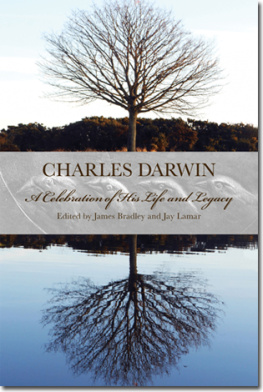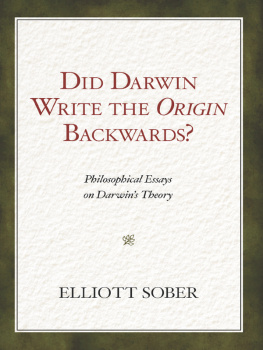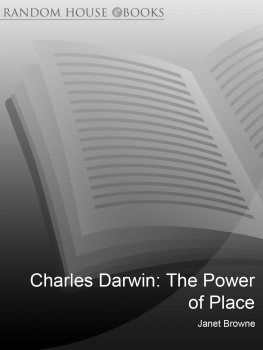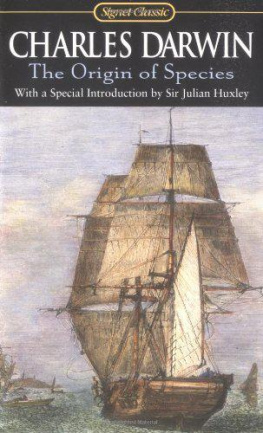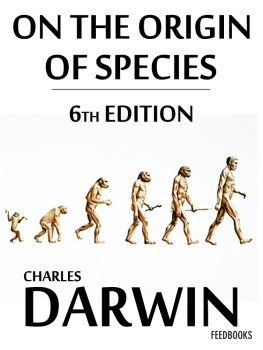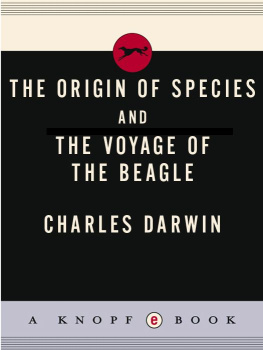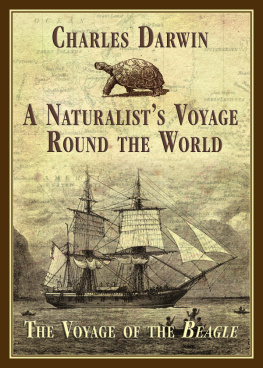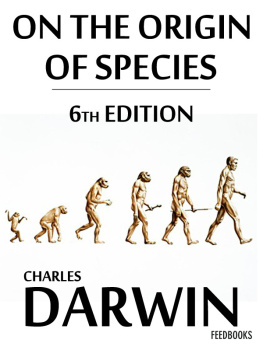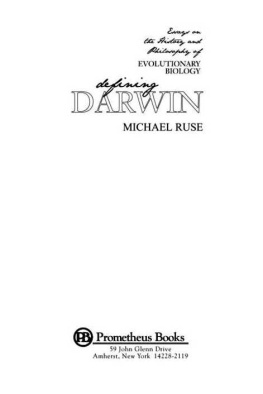Jay Lamar and James T. Bradley
David T. King, Jr.
Debbie R. Folkerts
Guy V. Beckwith
Kelly A. Schmidtke, John F. Magnotti, Anthony A. Wright, and Jeffrey S. Katz
Kenneth M. Halanych
James T. Bradley
Jay Lamar and James T. Bradley
Humankind is fortunate for the life of Charles Robert Darwin (180982). This volume, Darwin: A Celebration of His Life and Legacy, commemorates the 200th anniversary of Darwins birth and the 150th anniversary of the first edition of his most famous book, On the Origin of Species by Means of Natural Selection, or the Preservation of Favoured Races in the Struggle for Life. Darwin changed the world forever with his 1859 publication of that book, whose title was shortened to On the Origin of Species with its sixth edition in 1872. The ideas in On the Origin of Species reordered the biological sciences; spawned new disciplines of inquiry such as evolutionary psychology, sociobiology, and evolutionary developmental biology (evo-devo); became foundational for modern biomedical research and practice; inspired new literature and literary criticism; were grotesquely misused by 20th-century eugenicists and social Darwinists; traumatized persons with certain theological views; and continue to alter humankinds view of itself and its place in the world.
The collective contributions to the present anthology tell an interdisciplinary story of Charles Darwin the person, Darwins work and world-altering ideas, and Darwins legacy. This celebratory volume is the result of a happy and stimulating collaboration between the College of Liberal Arts (CLA), the College of Sciences and Mathematics (COSAM), the Caroline Marshall Draughn Center for the Arts & Humanities, and the Outreach Committee in the Department of Biological Sciences at Auburn University, a land-grant institution on the eastern plains of Alabama. During the spring of 2009, the collaborators organized and sponsored a semester-long Darwin Celebration for the university and the larger community. The celebration included weekly lectures on diverse aspects of Darwins life, ideas, and legacy, and a birthday party on February 12. The lecture series included 13 speakers from four CLA departments and two COSAM departments. In addition, three world-renowned science/evolution scholars and writers visited campus to lecture and interact with undergraduate students: paleoanthropologist Richard Leakey, author and evolutionary biologist Kenneth Miller, and science journalist and author Natalie Angier. Nine speakers and four additional Auburn University scholars contributed essays for this volume. For Darwins birthday party, Department of Biological Sciences faculty and graduate students baked and gave away more than 800 cupcakes and distributed 2,000 commemorative bookmarks to students walking between classes.
The purpose of Auburn Universitys Darwin Celebration was to present Darwins ideas and their impact on diverse disciplines for general audiences in a friendly, clear, accurate, non-proselytizing way. Commemorative bookmarks with a copy of the image of Darwin and the Galapagos finches in the frieze outside the entrance to the Auburn Universitys Science Center Classroom were distributed to all event attendees.
We note with interest that the centennial celebration of publication of On the Origin of Species occurred in the same year as the famous 1959 Rede Lecture, The Two Cultures, by British scientist and novelist C. P. Snow.
We are gratified that Snows two cultures and Kagans third culture are all represented by the essays gathered here under a Darwinian roof. Essay contributors are faculty members representing six academic departments at Auburn University: Biological Sciences, Foreign Languages and Literatures, Geology, History, Philosophy, and Psychology. Moreover, we are especially pleased that the volume comes from a university in the Deep South, a region known to harbor deep and strong opposition to the theory of evolution. For us, publication of Charles Darwin: A Celebration of His Life and Legacy feels like a springtime breeze anticipating sunshine, warmth, thaw, emergent life, and change. The editors and contributors thank Randall Williams, Suzanne La Rosa, Margaret Day, Brian Seidman, Sam Robards, Matt Johnson, Robert Carter, Lisa Harrison, Noelle Matteson, Lisa Emerson, and Jeff Benton of NewSouth Books for their hard work on this volume, including their superb editing and, most important, their willingness to make available to a wide audience these discussions of Darwins life and work.
In Chapter 1, with characteristic clarity and wit, public educator, author, and evolutionary biologist Richard Dawkins leads off with an essay on the basic principles of evolution and responds to creationists standard arguments against evolutionary theory. Dawkinss essay is a transcript of a lecture he delivered at Auburn University in 1996. While en route to Auburn, Professor Dawkins heard about the Alabama Insert, a disclaimer of evolution by the Alabama State Board of Education pasted inside the cover of biology textbooks. Dawkins set aside his prepared lecture and extemporaneously critiqued the Insert. Later he gave permission for a transcript of his talk to be used to further the public understanding of evolution.
Chapters 25 describe what Darwin did during his lifetime and give insight into what led to his theory of evolution via natural selection.
David King (Chapter 2) documents Darwins training in geology and his little-known accomplishments as a geologist. Two great 19th-century geologists, Adam Sedgwick (17851873) and Charles Lyell (17971875), were strong and positive influences on Darwin. Cambridges Sedgwick showed Darwin the methods of a field geologist, and his inspiring teaching countered Darwins earlier negative experience with a poor teacher of geology at Edinburgh. Lyell authored Principles of Geology, of which Darwin read Volume 1 while on the voyage of the HMS Beagle (183136). Lyells geological uniformitarianism provided the framework Darwin needed for the vast periods of time for natural selection to produce the biological change and diversity that he observed in the fossil record and in the living world all around him. King tells how Darwin came to write four significant books on geology and then speculates about why Darwin did not pursue his love of geology after returning home from the Beagles voyage.
Jon Armbruster (Chapter 3) writes about the grand age of Natural History (late 1700s to about 1900), how it helped shape Darwin as a biologist, and how Darwin in turn influenced the character of the age. From this essay we learn what for some will be shocking newsthat magpies were more important than the famous finches of the Galapagos Islands for Darwins development of the concept of natural selection. Armbruster brings us up to date about the state of natural history collections worldwide and in Alabama, their value, and a recent use made of some of Darwins specimens that the collector could never have anticipated.

